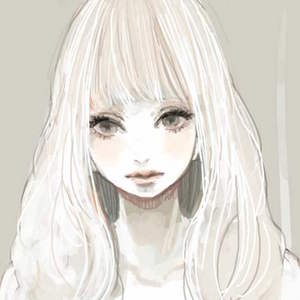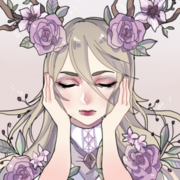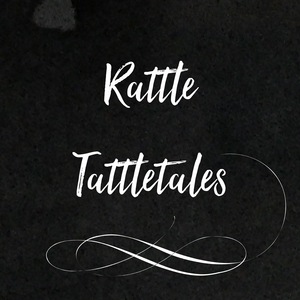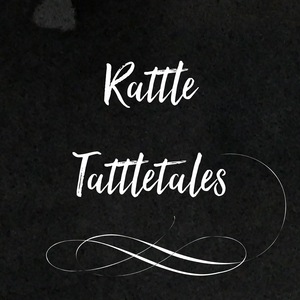After an alchemy experiment gone wrong, a mute boy and his pet-god end up in 21st century Europe.
Your smile sits on your lips
like an afterthought, as if
it could soften the calluses on
your deathless life.
|*|
Thump. Morgue leans back in his grandmother’s rocking chair and watches the world spin. It has not stopped since Lugnor hit him with a spade. “A test of mortality,” Lugnor said, “if you can get hurt, perhaps, so can I.”
Thump-thump. Dust motes circle above Morgue’s head like millions of little diamonds which glitter at odd angles then disappear. When he makes a grab for them, his hand comes back with nothing. Thump-thump-thump. The sound of Lugnor stamping up and down the stairs is beginning to grate on Morgue’s nerves. Breathing in deep and closing his eyes, Morgue tries to remember a time when Lugnor did not irk him like this.
At the beginning of the last century, Lugnor’s visits to the mortuary were the highlight of Morgue’s second life. Living as a revenant had taken some getting used to: the voicelessness, the unbeating heart, the whispers in his head that used to keep him up at night, the not-being-alive yet somehow alive enough to disqualify him from claiming afterdeath benefits. Aside from the goodly mortician, who had signed the adoption papers, Lugnor was the only bright thing in Morgue’s deathless life. He can still remember, even though it makes him cringe now, how embarrassingly smitten with Lugnor he was.
Lugnor Caw is intelligent, ambitious and weirdly obsessed with iron-pressed dress shirts. His stormy eyes and wolfish smile, charming. His silver-tongue, though, always too quick to the trigger; he fires jokes like ice pellets, and if Morgue is lucky, they bruise for only a month. Real emotions occasionally slip through the cracks in Lugnor’s composure: panic, amusement, irritation. Morgue never knows what to make of them — of the false humanity in Lugnor’s unchanging face.
But Morgue has learned over the years to differentiate between “what is” and “what is made to look like”. Back then, Morgue was a true thirteen-year-old — not like the fake one that he is now — impressionable and easily enamoured by anything that could hold a conversation and look good while doing it. Lugnor fitted the bill — he still does, which is what bothers Morgue the most. The only thing that’s changed in the last seventy years is Morgue’s feelings. These days whenever he sees Lugnor, all he wants to do is grab him by the ears, manoeuvre Lugnor’s head until he looks at Morgue and sees Morgue as he is now.
Morgue is no longer just “that human boy” Lugnor discovered inside a barrel. Mister Morgenstein is not just some party trick to make Master Lugnor Caw more interesting.
But Morgue will not say any of that, not that he can even if he decides that he wants to. He cannot allow himself to make such demands because doing so will throw whatever it is they have out of orbit. The stability of their dynamic hinges entirely on Morgue not reacting when Lugnor loses it over some small injustice at work then barges into Morgue’s study-cum-lab to screech like a banshee until he remembers he has more work to do.
Morgue is the only sentient thing in this multiverse that knows how to sit very, very still while Lugnor opens fire on him for three hours. It takes more than practice, or patience, or growing up. It takes knowing how to use love like a back brace, so the spine does not snap from being saddled with baggage. It takes remembering never to expect even an empty canteen in return.
Thump-thump-thump-thump.
BANG!
The door bursts open.
Morgue’s good eye twitches.
“I’ve checked all the rooms, Eyepatch,” Lugnor announces. “Nobody’s here. No one!”
I know, Morgue wants to say, but he can’t. Even though he knows this, his heart plummets still.
From the mucky humid air weighing down his bones and the sky that’s so doubtless of its blue, it’s clear that they didn’t fall through the floor so much as fell out of Lugnor’s world entirely. To Morgue’s credit, though, Lugnor has yet to suspect him of premeditation. And as far as Morgue is concerned, Lugnor had jumped in after Morgue out of his own free will.
Thunk! Lugnor smashes his elbow against the doorframe.
“Who made these passageways so small?” he grouches and pushes his silver hair from his face. His pale eyes flit around the hall before resting on Morgue who is lounging by the window sill. But Lugnor isn’t really seeing him. Morgue doubts Lugnor ever truly sees anyone, except perhaps as inconveniences.
Morgue undoes his eyepatch and runs his palms over his face. He is a tired old man stuck in this almost-teenage body that refuses to age, much less die. His return to this world should have fixed all of that. His body clock should have restarted. His pulseless heart should have remembered how to beat. And Morgue would be lying if he said he wasn’t hoping for Lugnor to be affected in some way. Morgue wants him to grow a heart, a pulse; grow feelings and be human. Instead, all this world seems to have done is make Lugnor loud and obnoxious simultaneously.
“As much as I hate to admit,” Lugnor says, “we need help from someone who is well-acquainted with this place.”
I am, Morgue doesn’t say. Instead, he kicks off his rain boots and places his feet flat on the floor. The stones are cold.
Morgue wants to smile. He waits until after Lugnor’s back is turned.
Something outside the window catches his good eye; a grey tomcat has darted across the rain-soaked field. His chest aches. This manor house used to be his favourite place. Like Morgue himself, it doesn’t seem to know to which century it belongs. Cover one eye and all he can see are wavy white walls and uneven stones spidered in delicate grey. Stairs that creak and groan with all the years of weathered treads from saddle shoes and hobnail boots. Cover the other eye and all he can see is how time has transformed it. Instead of creepers, electrical wires grow out of walls and computers whir awkwardly behind barn doors. A magpie is sitting on the dripping power lines. It watches Morgue with unblinking eyes the colour of a stormy sky.
As he takes it all in, his heart floods with something that hasn’t visited him in many years. He does not know what it is and does not feel the need to fill in the blank.
Lugnor prattles on behind him.
Morgue closes his eyes, overwhelmed by a sudden urge to swim free of the present. After he had died and lost his voice, time was like an elusive father who spent more years in uniform and aeroplanes than with his son. Days flooded into years, and years into eternity, at a speed that was at once cruel and laughable. The most horrific moments seem to have occurred only yesterday; Morgue cannot hope for time to erode his memories nor soften them when he has no life to anchor him in the present.
When living is forgetting, in death Morgue’s mind drifts always to the same shore.
Behind his eyelids, it is 1948. The year he died.
Morgue sees Viana do Castelo, Portugal and its beach with fat yellow sand. He remembers standing at the edge of the pier and feeling his ribcage expand like the unfurling of seagull wings. He remembers how his step-brothers, all six of them, stripped him of his clothes, shoved him inside a barrel then bolted the lid shut. He remembers the loopy feeling in his belly, the rising seawater, the rocking, the retching, the reek of vomit and, worst of all, the ignominy. Morgue does not remember dying, not exactly; he remembers Nico de Lima Salazar and his smile.
On the day the sun scorched their skin and plastered their shirts to their backs, Nico Salazar had leaned in through the kitchen sill, surprising Morgue with a kiss that ended square on his mouth instead of his cheek. Nico’s breath had smelled like fermented fruit, sweet and sharp. Morgue had been too shocked to pull away. On the truly bad days, Morgue hears the ghost of Nico’s laugh coaxing gooseflesh out of his nape. And whenever the sun has Morgue shielding his eyes, he is reminded of the quiet look on Nico’s face; tongue darting out to slick his salt-chapped lips, dark eyes considering the two points of colour blooming on Morgue’s cheeks. When Nico leaned back in, it had not been to kiss him but to hiss, “So our new father’s son is like that.”
Morgue still beats himself up for closing his eyes that day.
“Eyepatch, are you listening?”
Morgue blinks.
Lugnor is watching him from beside the empty hearth; pointy elbow propped on the mantelpiece, eyebrows arched, arms very crossed. The sun has leached the last tint of grey from Lugnor’s skin, brightening him until it almost hurts to look.
It isn’t that Lugnor lacks sentiment, but his poetry is that of the mind and the body, not the heart. Everything means something — it’s a matter of knowing where and how to read. For instance, whenever Lugnor feels cornered, he shoves his hands in his pockets to hide the curl of his fists. And before pretending to dive head-first into a brawl, Lugnor’s eyes dart around the room, mapping out all escape routes in case things don’t go his way. They usually do. His words, his insults, his flattery are just that; a sleight of hand to distract his opponent, a breath on a mirror to fog up his reflection so that no one ever sees him for what he is.
And Morgue isn’t deaf; he can hear what people are saying. Liesmith, they hiss at Lugnor on the streets yet kiss his feet when they need his help. Lugnor isn’t bitter, though, as far as Morgue can tell. He doesn’t hold grudges either. He is too immortal for that.
Lugnor clears his throat. “Your bones will snap at this rate.”
Morgue glances down at his own fists, sharp-knuckled and damnably white against the brown arms of his grandmother’s rocking chair. When Morgue lets go, colour does not rush back into his fingers. There is no heart in this house that can beat life into these bones.
Lugnor drops his arms, palms clapping dully against his slacks. He sighs.
“Listen, Eyepatch. Honestly—”
Morgue gets up. He goes to examine what used to be his mother’s bookcase. He runs his fingertips along the woodgrain, feeling for the weathered grooves that should be there if this is indeed the house he grew up in. He bites back a smile when he finds them. The words should spell Morgen Stein, but spaces, like silence, were never his thing.
MORGENSTEIN, it reads instead.
Before the ignominy of 1948, he was young and stupid and wanted pieces of himself on everything: to scrawl his name on his mother’s ledger, engrave his heart on his seat neighbour, his pain on every doorframe, his feelings on every crush.
He wanted to write mine, mine, mine across their hearts because deep down he knew that they were not his. But if he could just fool other people into believing, then they just might leave untouched the things Morgue could not have to himself. It was not until Nico Salazar had outed him to his brothers that Morgue learned not to heave his heart into his mouth, not to cup the truth in his palms because he liked to watch it spill. The only one who found that sort of thing beautiful was Morgue, his step-brothers had made that clear.
“Talis ir Varden!” Lugnor swears in Nawkturi, the tongue of the dead. “Yer Morgenstein, are you ignoring me?”
Morgue makes a point of scanning the hall. Next to the wine rack is a wooden bowl filled to the brim with an assortment of fruits — apples, grapes, bananas, oranges and peaches — ripe, rich and gaudy. Morgue hurries to it, peels a banana and bites off a mouthful. The fruit is fluffy in his mouth, smooth with a floury sweetness. This is what buttered moonlight must taste like. Ba-dump.
Morgue almost drops the fruit.
He stills. He listens.
Ba-dump.
Morgue slaps his palm on his chest. What sits in between his ribs is a deadweight, but he’s sure he felt it beat. Ba-dump. His breath catches. He’s pressing his sternum so hard now he can practically feel the bones bend. Ba-dump. There it is. Again!
Morgue’s eyes feel like they are being stabbed by a thousand pinpricks. He sniffles. Just a little, so Lugnor will not hear him. New tears burn at the backs of his eyes. He wills them away with an intake of breath. He holds it in and does not breathe until he’s sure the next one will not break halfway into a sob.
Ba-dump.
Lugnor’s footsteps clack sharply on the stones.
Morgue scrubs the tears from his face just as cold fingers curl around his shoulders.
“Listen. We should scan the shelves for maps, or any indication of—” Lugnor spins Morgue around and freezes.
Ba-dump.
Morgue holds his breath. He shouldn’t. It isn’t healthy. He has just come back to life.
Lugnor narrows his eyes. He leans down until their noses touch.
Ba-dump.
Morgue’s chest burns with every good feeling he had had that went bad because he felt too much. He exhales in Lugnor’s face.
Lugnor crinkles his nose, mouth thinning into a terse line. He smells of fresh parchment and monsoon season, and Morgue allows his lungs to soak him in. This is enough. In this manor house, there will be no closing of eyes nor dastardly kisses, no exchanging of secrets, no heaving of hearts into mouths.
To be alive is so mind-numbing that all Morgue wants to do is close his eyes and breathe. The bare fact of existence paralyses him; it’s impossible to not feel this crazy cartwheeling, swinging-from-a-tree-branch happiness while outside the sun shines and in the embrace of time he is — he is.
Lugnor brushes a tear from Morgue’s cheek, fingertip ghost-light.
Ba-dump.
Morgue doesn’t feel the urge to grab Lugnor by the ears and force him to look and see. He doesn’t need Lugnor to learn the rhythm of his heart or feel the rush of mortality. Lugnor is fine as he is.
Life without death is merely existence. Morgue is not made to last this long. In time, Lugnor will realise that on his own. And maybe he will understand, or maybe he will forget about Morgue just as easily as he did about others. But that is none of Morgue’s business. It is Lugnor’s decision how he chooses to spend his immortality after Morgue is gone.
He has been at it for longer than Morgue anyway.
When Lugnor glances up at the ceiling, Morgue knows he is checking it for water stains. There is no stain, so now Lugnor frowns. He is confused.
“Why is your face wet?” Lugnor asks.
Morgue sighs. Half-blind in one eye, he still sees more than Lugnor does.
Morgue hands Lugnor his unfinished banana and pushes past him. He nods in the direction of the drawing room. I’ll start over there is what he means. He is six steps out of the hall before the puzzle pieces in Lugnor’s brain click loudly into place.
“The fruits are ripe!” Lugnor cries. “Someone still lives here. Eyepatch, come back!”
Lugnor sprints after him, more sure-fire than his shadow.
Outside the window, the sun has turned an ice-creamy orange.
- END -











Comments (0)
See all